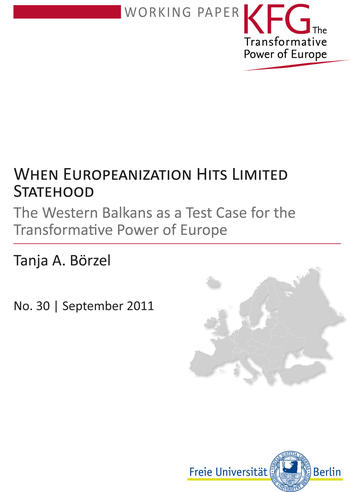When Europeanization Hits Limited Statehood: The Western Balkans as a Test Case for the Tranformative Power of Europe
Tanja A. Börzel – 2011
The EU seeks to transform the domestic structures of the Western Balkan countries in order to foster peace, stability and prosperity in the region ridden by war and ethnic conflict. Unlike in case of the Mediterranean and Newly Independent States, the EU has even offered its South Eastern European neighbors a membership perspective. Whether the “golden carrot” is big enough, however, to draw the Western Balkans closer to Europe, is still an open question. Croatia has made sufficient progress to successfully conclude accession negotiations in the years to come. The EU rewarded domestic reforms in Macedonia and Montenegro with granting them candidate status, which Serbia is likely to receive in the near future. Albania, by contrast, appears to be more reluctant to engage in the changes necessary to get even with Macedonia and Montenegro. Bosnia Herzegovina and Kosovo, finally, are seriously lagging behind and have not even applied for membership. Can Europeanization approaches account for the differential impact of the EU in the Western Balkans? The paper argues that problems of limited statehood have seriously curbed the transformative power of the EU in the Western Balkans - despite their membership perspective. Not only has the EU exerted less pressure for adaptation on Western Balkan governments. Weak state capacities and ethnic conflicts have reduced both their willingness and capacity to implement the acquis communautaire. Given its lack of experience in state building, the EU is ill-equipped to address these problems. This results in a serious dilemma. On the one hand, the EU has offered the Western Balkans a membership perspective to stabilize the region and overcome problems caused by weak and contested statehood. On the other hand, it is the limited statehood of Western Balkan countries, which undermines their compliance with EU norms and rules.

